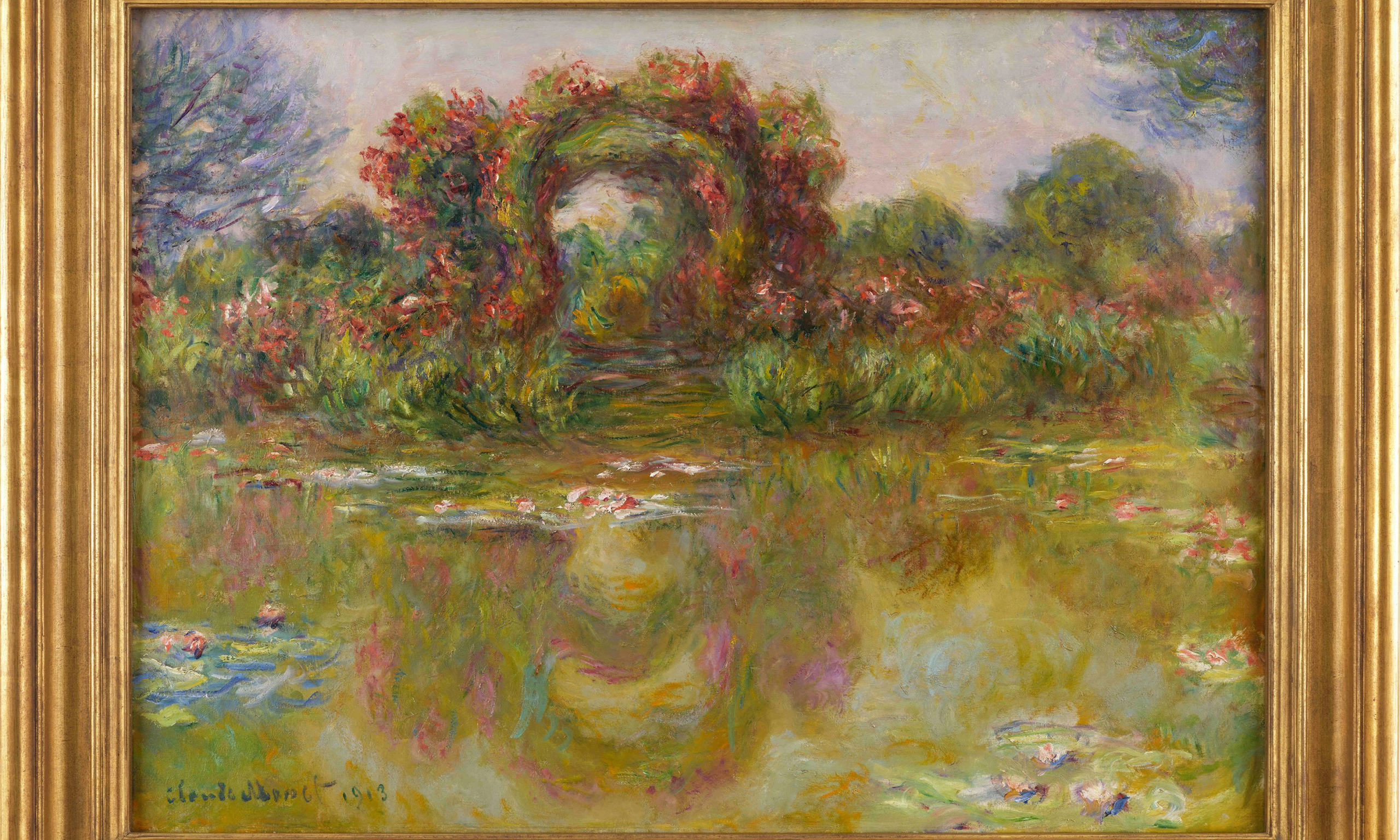Claude Monet's Bassin aux nymphéas, les rosiers, 1913
Courtesy of China Guardian
This season’s big auctions in Beijing kicked off with China Guardian’s evening sales on Sunday, where Claude Monet’s Bassin aux nympheas, les rosiers sold for RMB154.1m (around $24.1m, with fees) at the first-ever Impressionist and Modern art sale of the leading Chinese auction house.
That price makes the Monet the most expensive Western work of art ever sold in mainland China, beating the previous record set last November, when Gerhard Richter’s Column sold for RMB80.5m ($12.65m, with fees).
The 1913 oil depicts a summer view of Monet’s beloved Giverny garden, where a vibrant rose arch overlooks a pond of water scattered with waterlilies. Typical of the artist’s mature style, at 73cm by 1m it is the largest of the three oils that depict his garden from this view.
The seller is thought to be the billionaire business magnate Wang Jianlin, who was known for collecting Chinese painting and calligraphy at first, but has since broadened his tastes. The auction catalogue shows the last owner bought it from Sotheby’s in New York in 2015, and Wang’s company collection director once publicly said that it was the buyer.
In the past, works by Western Impressionist masters have rarely been presented on the mainland market. But China’s booming economy and growing art market, plus rising number of public and private museums, have naturally grown interest in western canons, says Hu Yanyan, the president of China Guardian.
Interestingly, the top five lots of China Guardian’s evening sale—including the Monet, a Picasso portrait and a Pissarro landscape—were all consigned by Lévy Gorvy gallery on behalf of its clients, according to Rebecca Wei, who joined the gallery as its Asia partner last October having stepped down as chairwoman of Christie's Asia in 2019.
“This is the first time that we have partnered with an auction house in mainland China.” Wei says. “We are pleased with the auction results and look forward to exploring further co-operation in the future.”

